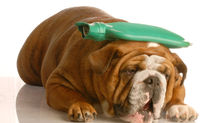Pernio (Chilblains)
Quite relevant given the weather in some areas of the UK yesterday!
Chilblains are areas of skin which become red, itchy and inflamed following exposure to the cold. The skin on the affected area may also become blue or develop blisters. These affect the feet most commonly, but can also affect the hands, ears, nose and thighs.

Sadly chilblains are common in the UK due to our climate and are much more prevalent in the winter months.
When the skin becomes cold the blood vessels constrict, limiting the delivery of blood to the tissue. When the skin is then exposed to warmth the blood vessels widen quickly, causing a sudden rush of blood. If the blood vessels widen too quickly the blood vessels are unable to cope with the sudden influx of blood, which leads to the blood leaking in to the surrounding tissues. The tissues become engorged and chilblain symptoms develop.
Some people are more likely to develop chilblains, those who work outside for example, and those with compromised circulation. It's also worth noting that those with a history of chilblains are more likely to develop them again.
How can you relieve the itching?
There are a number of self help techniques which can be used to alleviate the symptoms of chilblains. Simple things such as keeping the extremities warm when the weather is cold can make a massive difference. Other helpful points to remember are;
Don't immerse cold body parts in hot water to warm them up.
Don’t wear tight fitting shoes or clothes as this can restrict blood circulation, and also air circulation.
Speak to your pharmacist about topical creams which can be used to relieve the itching and burning. Providing they do not affect medication, or there are no allergies present it is thought that pineapple (which is a natural blood thinner and anti-inflammatory) and onions and garlic (both natural anti-inflammatories) may help.
This information is a guide only. If you are concerned about any symptoms you may have please contact your GP or healthcare professional for help, advice and assistance.






















